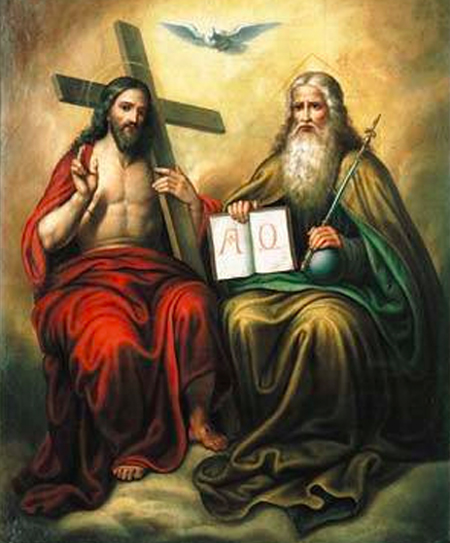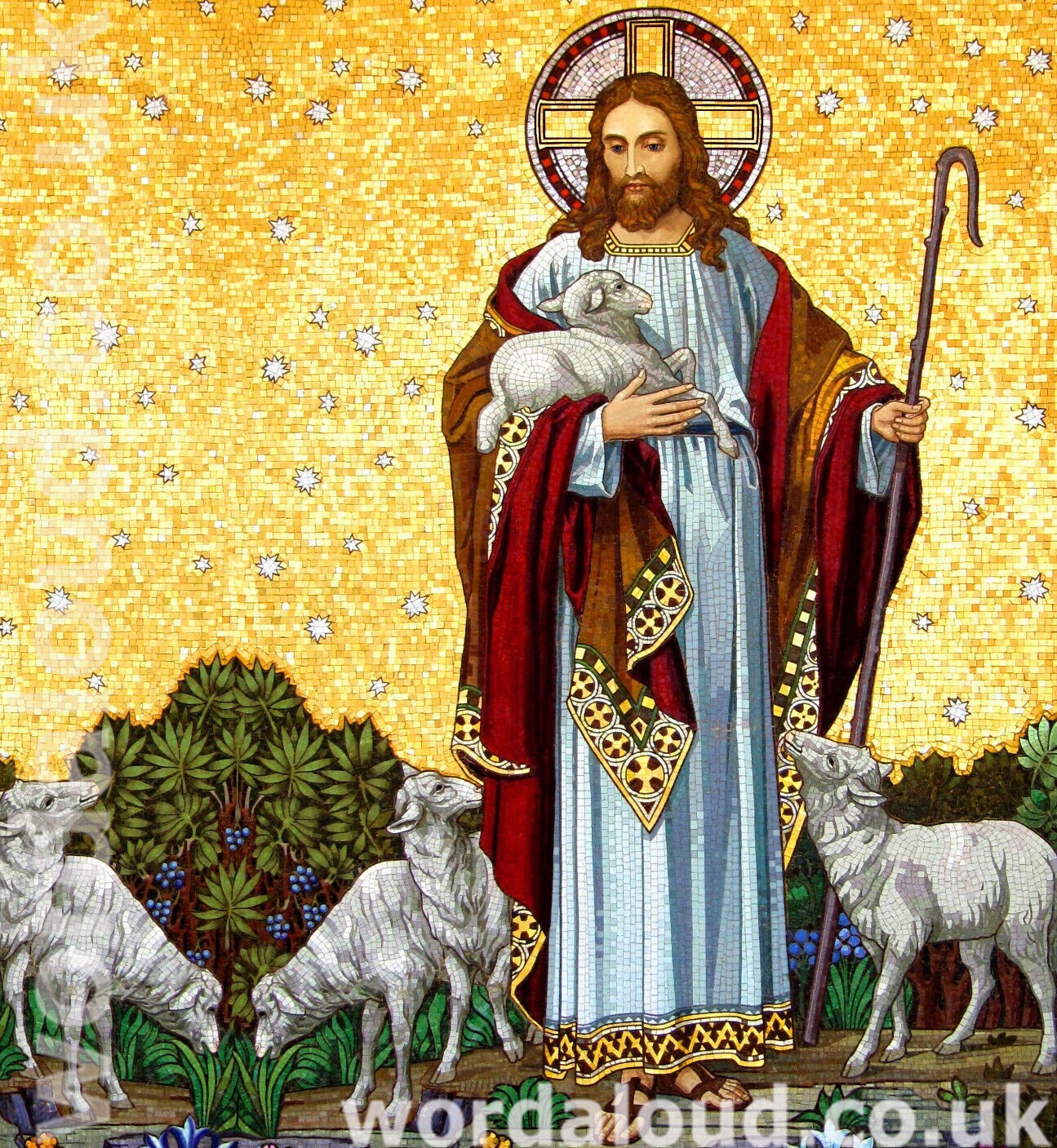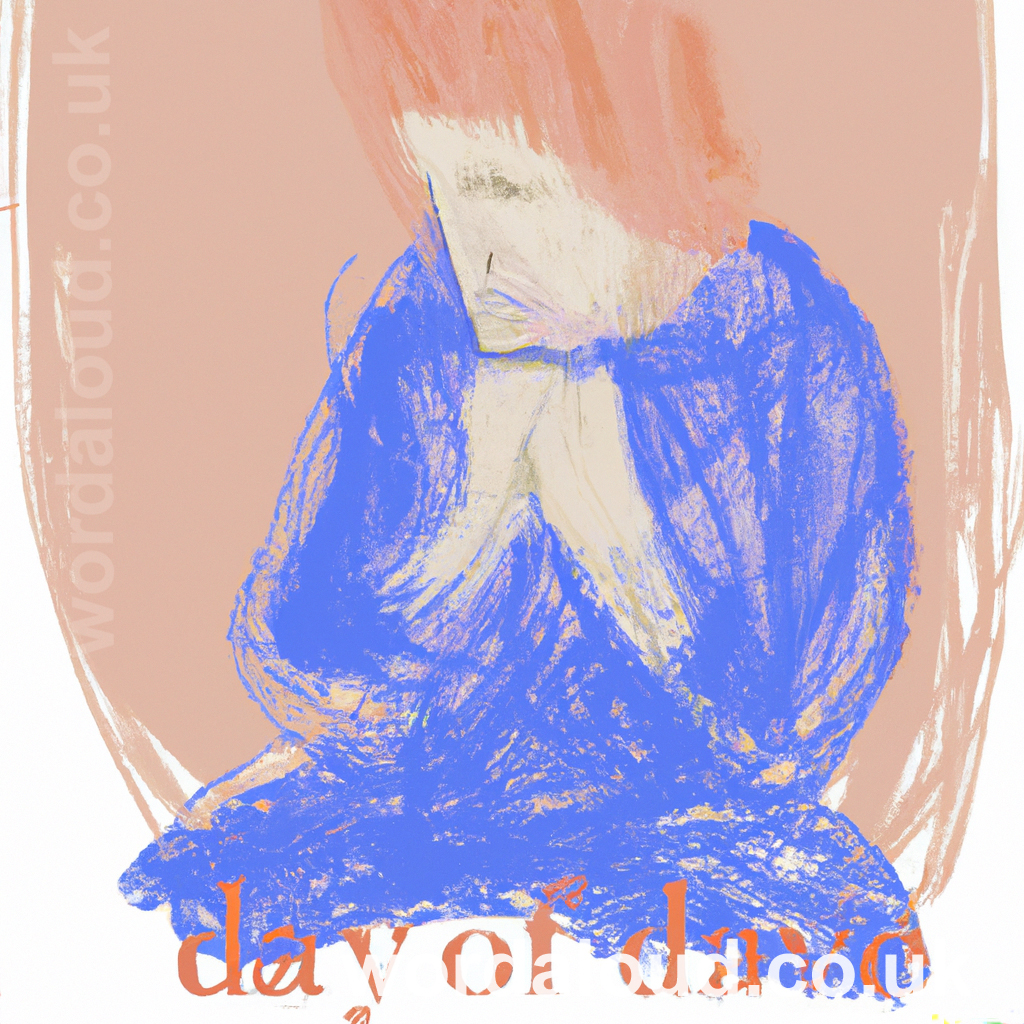John 12: 20-33 – Lent Week 5, Sunday (Year B) (Audio Bible, Spoken Word)
20 ¶ And there were certain Greeks among them that came up to worship at the feast:
21 The same came therefore to Philip, which was of Bethsaida of Galilee, and desired him, saying, Sir, we would see Jesus.
22 Philip cometh and telleth Andrew: and again Andrew and Philip tell Jesus.
23 ¶ And Jesus answered them, saying, The hour is come, that the Son of man should be glorified.
24 Verily, verily, I say unto you, Except a corn of wheat fall into the ground and die, it abideth alone: but if it die, it bringeth forth much fruit.
25 He that loveth his life shall lose it; and he that hateth his life in this world shall keep it unto life eternal.
26 If any man serve me, let him follow me; and where I am, there shall also my servant be: if any man serve me, him will my Father honour.
27 Now is my soul troubled; and what shall I say? Father, save me from this hour: but for this cause came I unto this hour.
28 Father, glorify thy name. Then came there a voice from heaven, saying, I have both glorified it, and will glorify it again.
29 The people therefore, that stood by, and heard it, said that it thundered: others said, An angel spake to him.
30 Jesus answered and said, This voice came not because of me, but for your sakes.
31 Now is the judgment of this world: now shall the prince of this world be cast out.
32 And I, if I be lifted up from the earth, will draw all men unto me.
33 This he said, signifying what death he should die.
Jesus’ Passion is near. It is almost time for Jesus to permit himself to be crucified. It is true to this that the Greeks, non-Jews, have come to seek Jesus and to hear his word. Jesus’ mission, to come to earth to save everyone, is becoming fulfilled.
It is strange that, through this passage of the Bible, we sense the darkness of the murder of our Lord gathering around Jesus, just as we see through this the salvation of all mankind. There is a long dark night of the soul ahead of us. Jesus recognizes this. He asks us to think of a seed, which must die and go into the ground before life can be born of it.
We are approaching the most testing time of our Lenten journey. We are asked to confess all and we are asked to renew our baptismal promises. We are asked now to give up everything.
What is asked of us, by Jesus, is an act of complete self-surrender. We are told to cling to nothing and to surrender everything. ‘He that loveth his life shall lose it; and he that hateth his life in this world shall keep it unto life eternal.’
It would be easy to misunderstand this saying. What we are taught now by Jesus is never to cling to the pleasures of the flesh in this life; rather to see the reality of this life and of the life to come as they truly are, to distinguish vain and transitory pleasures in this life from the eternal glory which is intended to be ours. We are taught by Jesus to let go of things and to give ourselves up to God’s gift which is everything. We are taught to let go of all selfishness and to give ourselves up wholly to God’s mercy. This is happiness.
It is through this witness of the Gentiles that Christ, in this passage of the Bible, is further acclaimed by his and our Father. There is a voice from heaven to proclaim Jesus once more as the Son of God. The people hear it.
Jesus is not arrogant, however; he tells the people that the voice from heaven is not for him but for those ordinary people who are with him and who have followed him while he has taught them. He is modest in this moment. Always, Jesus gives his life back to us. We are asked always to look at ourselves again through Jesus’ ministry and to correct ourselves and so be better equipped to discover salvation through Jesus.
We are asked to place ourselves in a new relationship with our Father through God the Son.
The time is close. We will soon be celebrating Christ’s last entrance into Jerusalem, the institution of the Eucharist, the Last Supper, and thence the passion and the death and resurrection of God.
The darkness is gathering. But through this darkness, what great light.
We are now observing a solemn feast – which way are we to take? As we draw near to this day of celebration – whom shall we have as leader? No one, dearly beloved, except him whom you will name with me our Lord Jesus Christ, who said: ‘I am the way.’ Here it is, as Saint John says, who takes away the sins of the world. He purifies our souls – as Jeremiah the prophet says: ‘Stand on the ways and see and discern which is the right way and on it you will find cleansing for your souls.’
Audio Bible KJV | Endnotes
The Hour Is Come That The Son Of Man Should Be Glorified | Now Is My Soul Troubled
John 12:20-33 depicts a turning point in Jesus’ ministry. At this point in the narrative, Jesus has already performed many miracles and teachings, and has gathered a large following of disciples. However, the Pharisees and other religious leaders have become increasingly hostile towards him, and are seeking to have him arrested and executed.
In this context, a group of Greeks, who may be considered Hellenic and of Jewish faith, come to Jerusalem to worship during the Passover festival. They approach Philip, one of Jesus’ disciples, and ask to see Jesus. When Philip tells Andrew, another disciple, about the request, they both bring it to Jesus.
Jesus’ response is not to meet with the Greeks, but rather to use the request as an opportunity to teach about his impending death and resurrection. Jesus says: ‘The hour has come for the Son of Man to be glorified. Very truly I tell you, unless a kernel of wheat falls to the ground and dies, it remains only a single seed. But if it dies, it produces many seeds.’ (John 12:23-24, NIV)
This metaphor of the kernel of wheat falling to the ground and dying is rich with theological significance. First, it foreshadows Jesus’ own death and resurrection. Just as the kernel of wheat must die in order to produce new life, so too must Jesus die in order to bring about the salvation of humanity. This understanding of Jesus’ death as a necessary sacrifice for the sake of others is a central theme in the Gospel of Saint John.
Second, through the metaphor we are taught to know, in advance in terms of the narrative, that Jesus’ death is not a defeat, but rather a necessary part of a plan of salvation. This is reflected in Jesus’ use of the term ‘glorified’. The Catholic theologian Karl Rahner notes that this term refers to ‘the eschatological exaltation and definitive recognition of Jesus by the Father, which was accomplished through the paschal mystery of his death and resurrection’ (Rahner, Theological Dictionary).
In other words, Jesus’ death on the Cross is not a tragic event, but rather a necessary step towards ultimate glorification and exaltation. This complete understanding in advance of the crucifixion as a glorification or lifting-up is distinctive to the Gospel of John, and sets it apart from the other three, synoptic Gospels.
Third, the metaphor of the kernel of wheat falling to the ground and dying suggests that Jesus’ followers must be willing to undergo their own spiritual deaths in order to experience new life. As the Protestant theologian Dietrich Bonhoeffer notes: ‘When Christ calls a man, he bids him come and die.’ (Bonhoeffer, The Cost Of Discipleship)
This means that in order to be true disciples of Jesus, Jesus’ followers must be willing to let go of their old selves and be transformed into new creations. This idea of spiritual rebirth is a recurring theme in the Gospel of John, and is tied closely to the concept of eternal life.
By emphasizing the thought of glorification and spiritual rebirth, Jesus invites his followers to participate in their own transformation, and to experience the fullness of life in Jesus.








